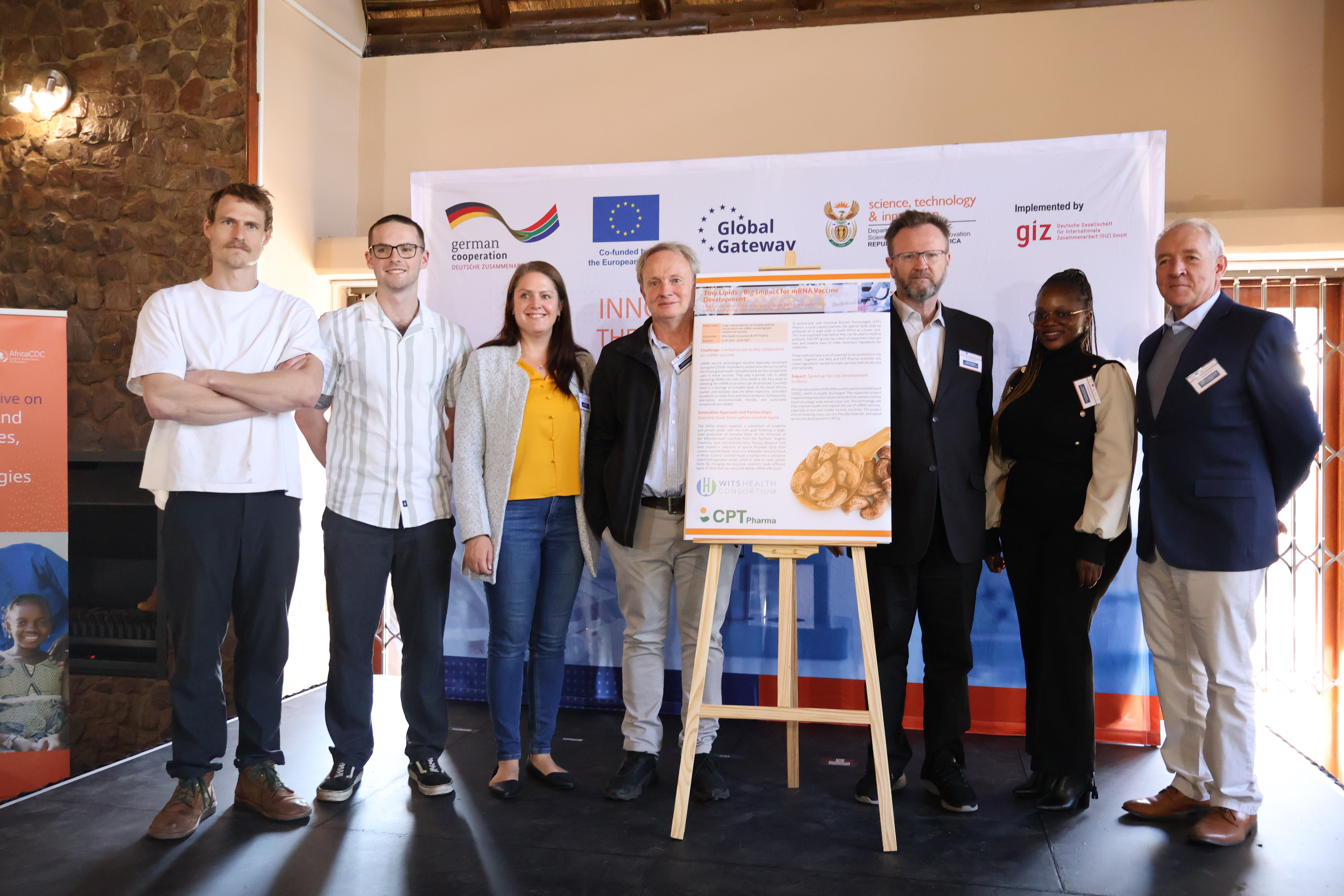Wits scientists win prestigious international award for converting cashew waste into key vaccine ingredient

mRNA vaccine technologies gained prominence during the Covid-19 pandemic and are now central to future global health efforts. Ionisable lipids – a crucial component in these vaccines – enable the safe delivery of mRNA into cells, where it instructs them to produce proteins that trigger immune responses. However, these lipids are currently expensive, often made from petroleum, or subject to restrictive patents.
“Ionisable lipids have important applications for vaccines, and the potential to scale this technology is promising. We are excited to develop a sustainable, locally sourced alternative", says professor Patrick Arbuthnot, head of the Antiviral Gene Therapy Research Unit at Wits.
Within the Local large-scale production of ionisable lipids project, the Wits team has successfully transformed cashew nutshell liquid – a by-product of the cashew industry that is abundant across Africa, into hydrogenated cardanol. This is a cheap and sustainable way to assemble ionisable lipids, which can be custom-designed to carry mRNA. This is an accessible alternative for low- and- middle-income countries, as Africa produces about 54% of the world’s cashew nutshell liquid, which is usually discarded as waste.
"Furthermore, the source of the chemical building blocks is from cashew shells and not the cashew nut. Hence this doesn’t compete with an important food source,” said Professor Charles de Koning, Head of the School of Chemistry.
In partnership with a local partner's researchers, who use innovative and creative methods to develop essential ingredients for medicines, the special lipids shall be produced on a large scale in South Africa at a lower cost. Afterwards, the scientists will develop the ingredients needed to produce vaccines both locally and internationally.
A 340.000 EUR grant for the success of the project
By winning the award, the project secured a 340.000 EUR grant under the GIZ SAVax programme, funded by the European Union and the German Federal Ministry for Economic Cooperation and Development (BMZ).
The SAVax programme supports vaccine and health technology innovation across Africa as part of the Team Europe Initiative on Manufacturing and Access to Vaccines, Medicines and Health Technologies (MAV+). Enrico Brandt, Deputy Head of German Embassy to South Africa Mission, explained that South Africa is uniquely placed as a science and innovation hub:
“South Africa, through its scientific excellence, can respond to current and future health threats. It is a strategic decision for Europe to invest in these bio-innovation projects, particularly in light of colliding health challenges.”
This innovation demonstrates how African ingenuity can solve global health challenges through local resources and sustainable science, concluded Patrick Arbuthnot.
Latest Highlights:
Can we dress well without harming the planet? SU researcher unpacks sustainable fashion
Reconnecting teenagers with nature to better care for their mental health
